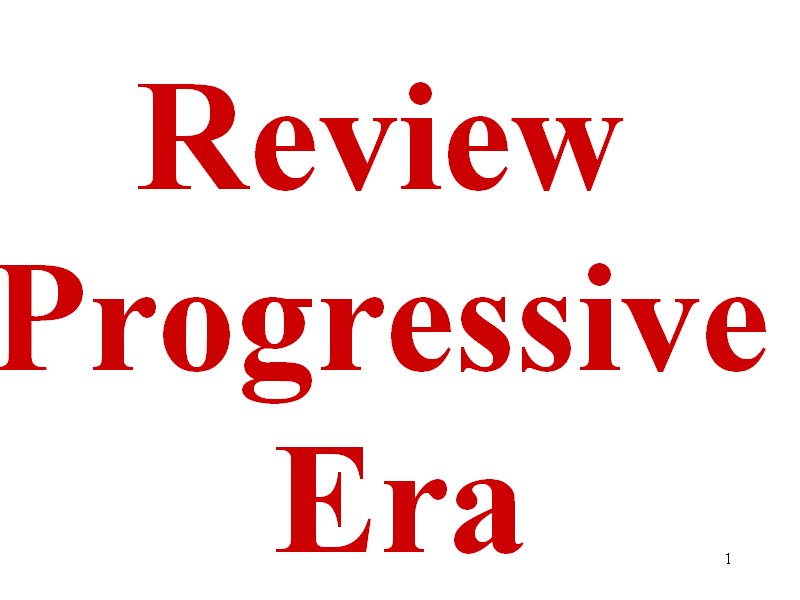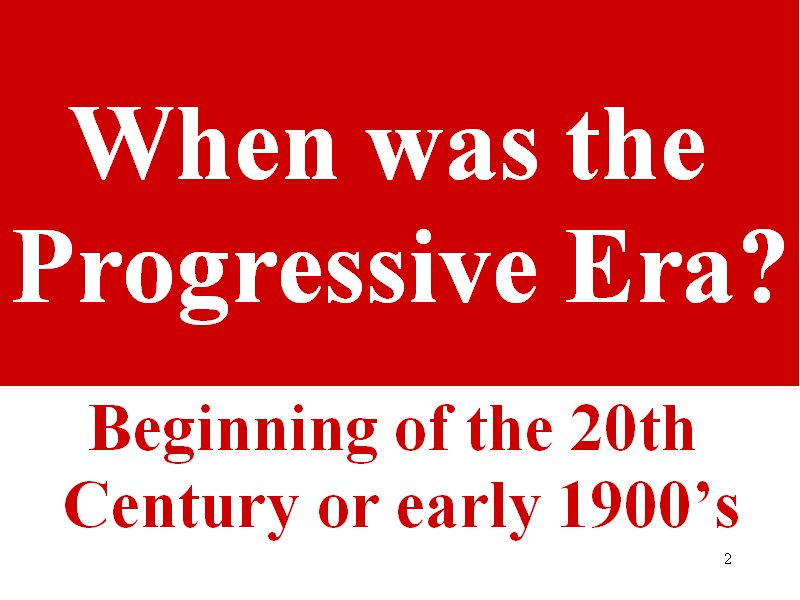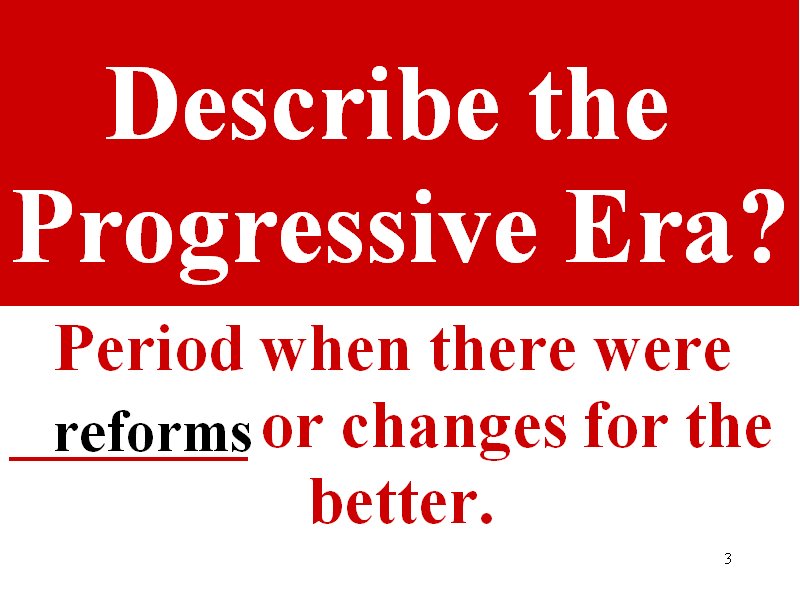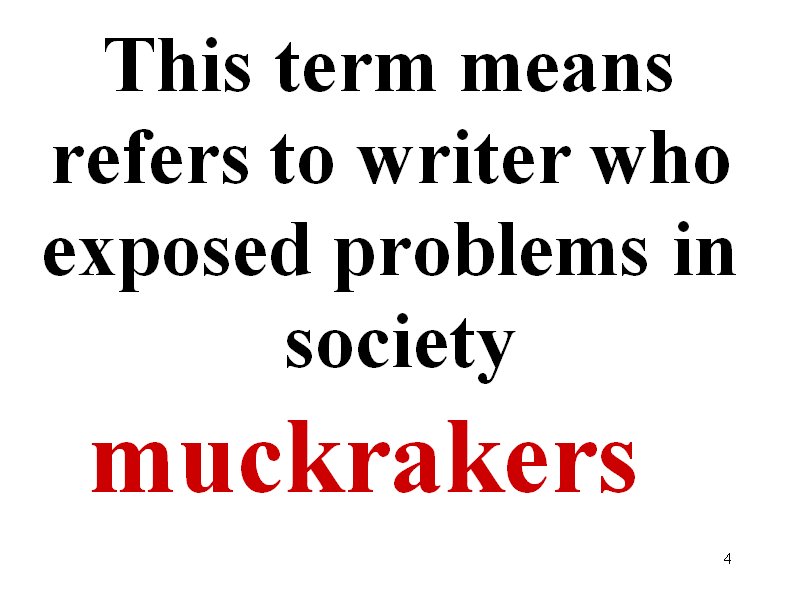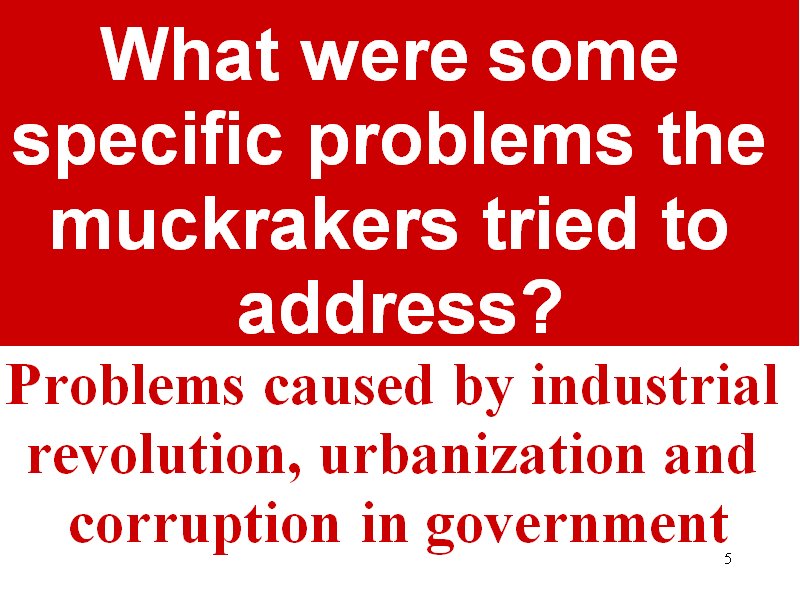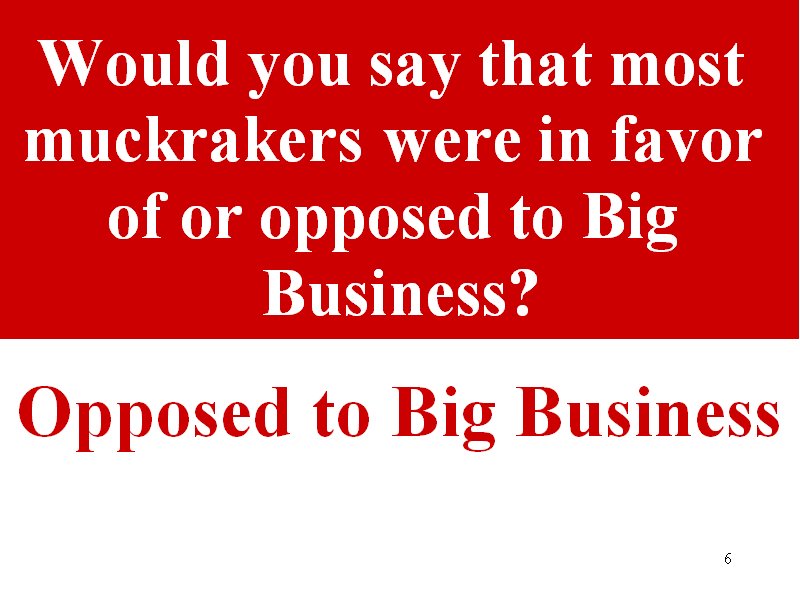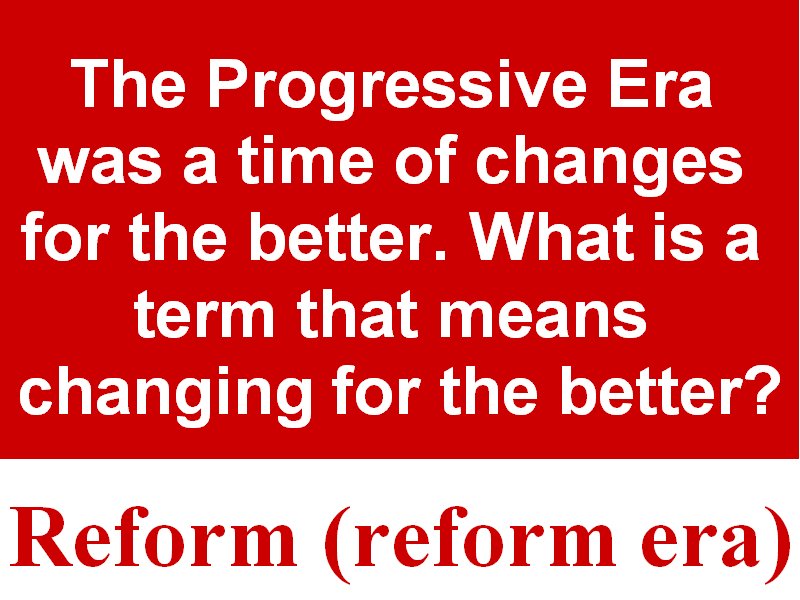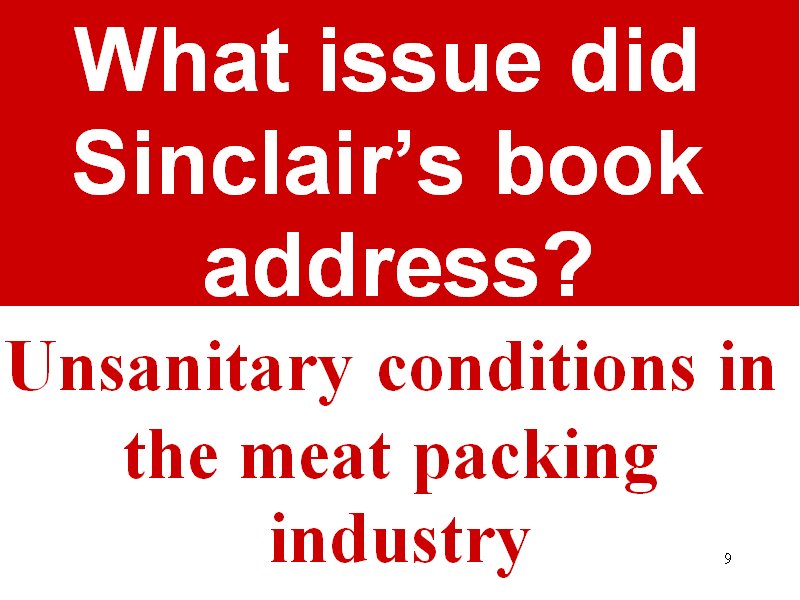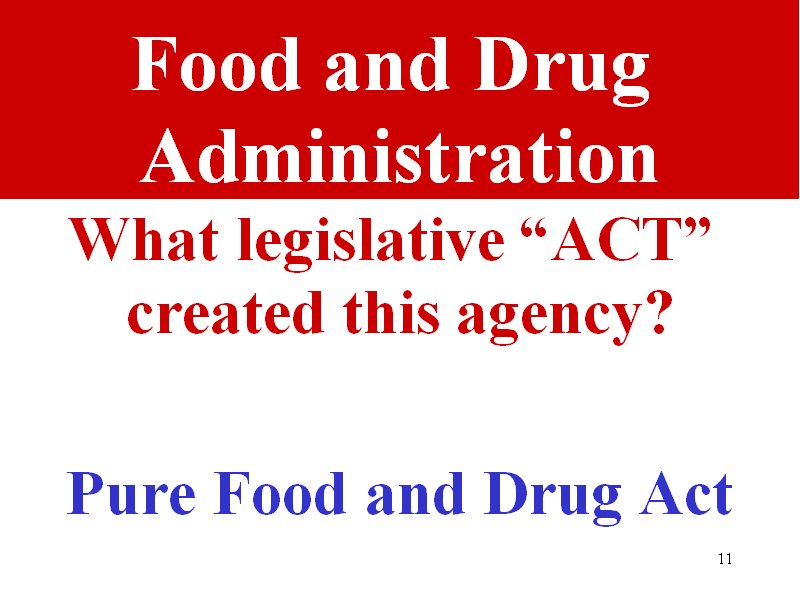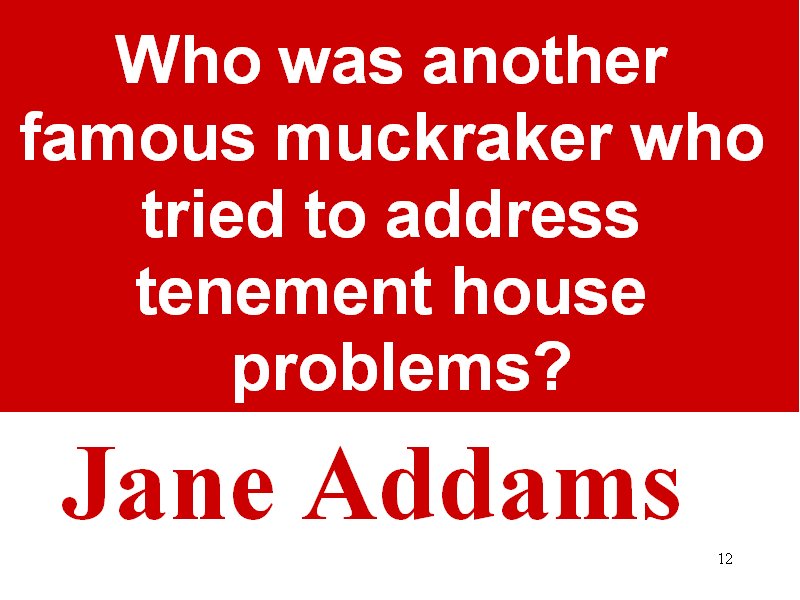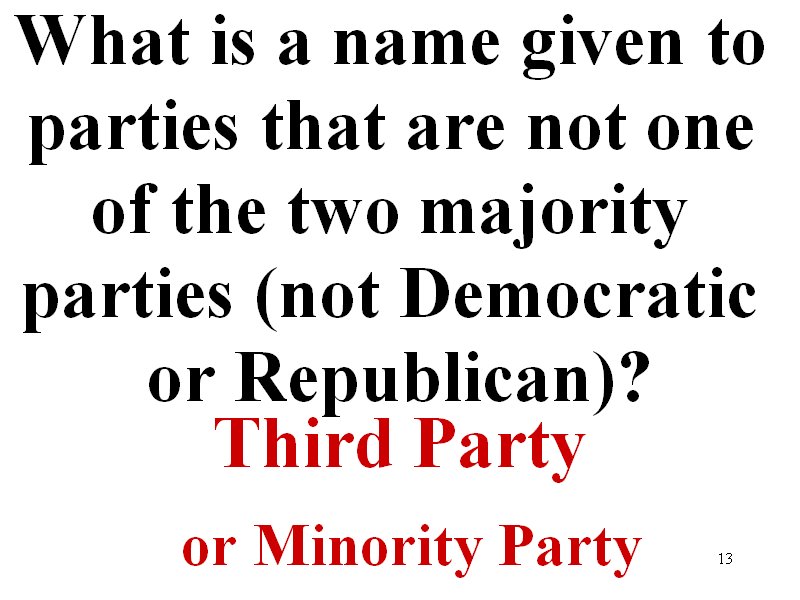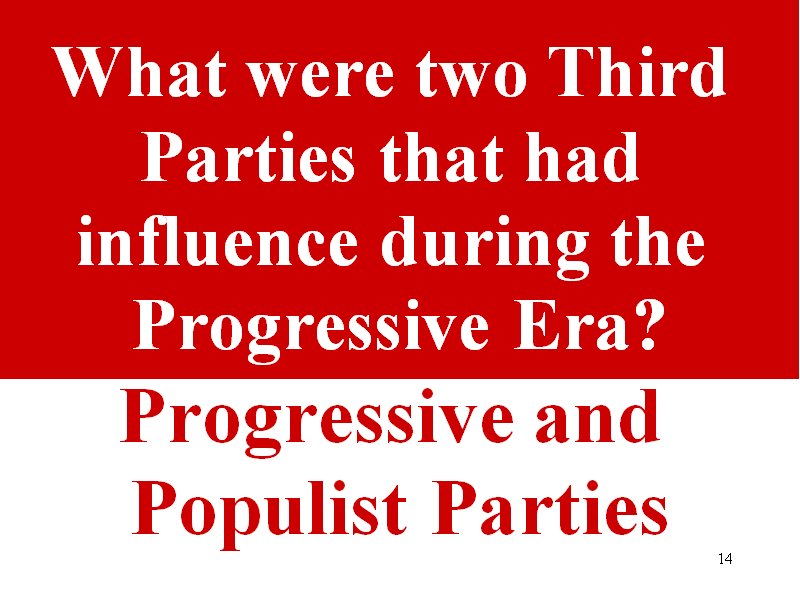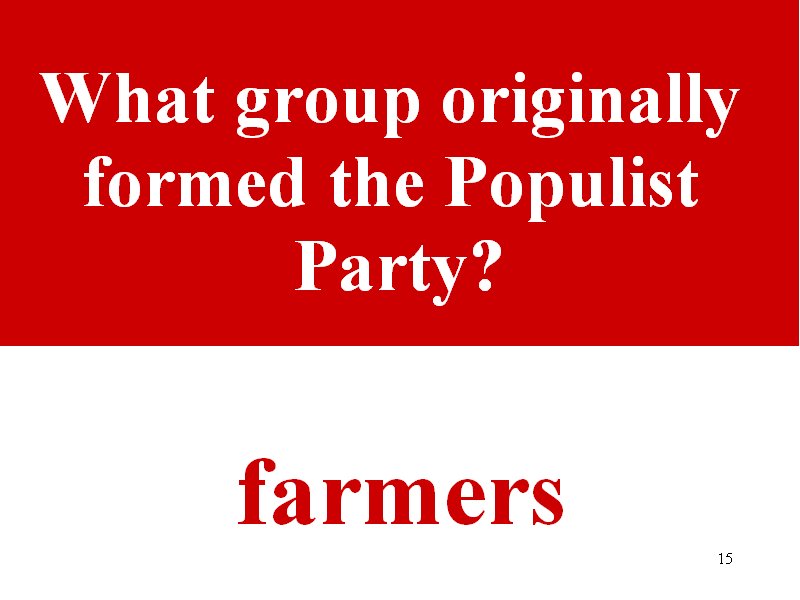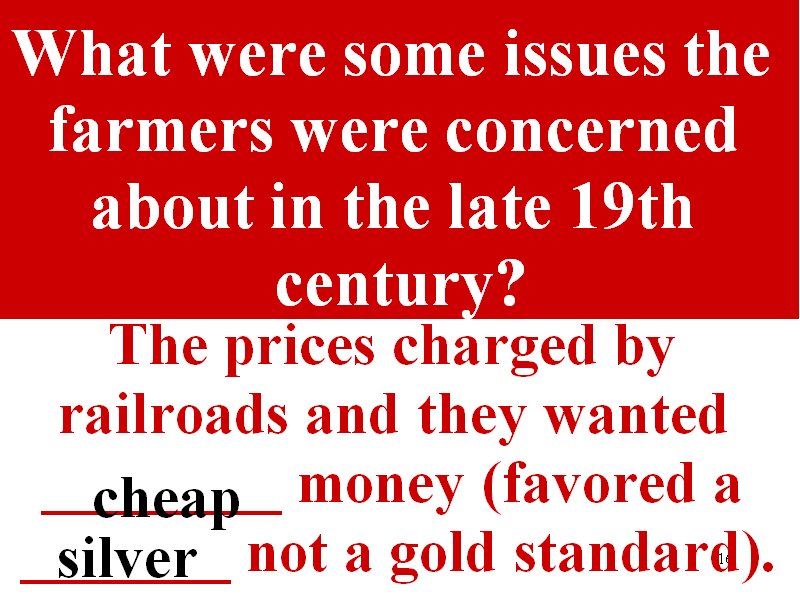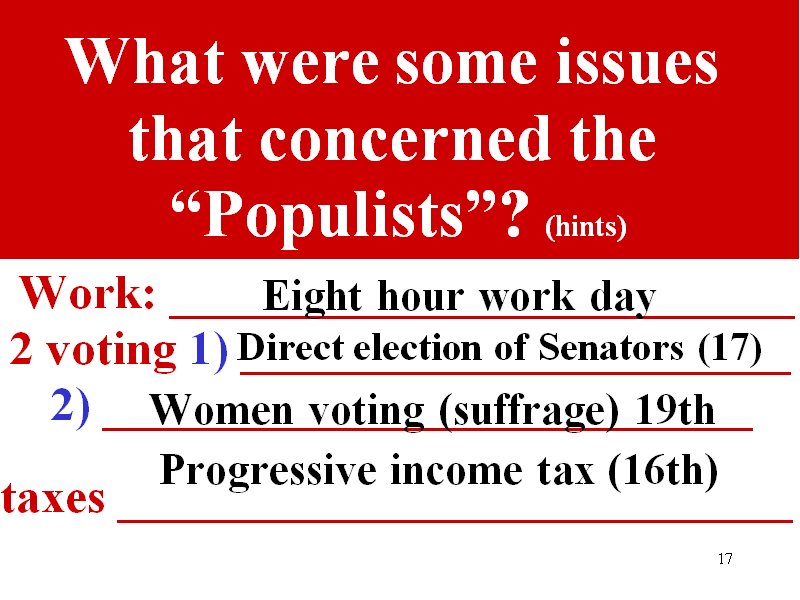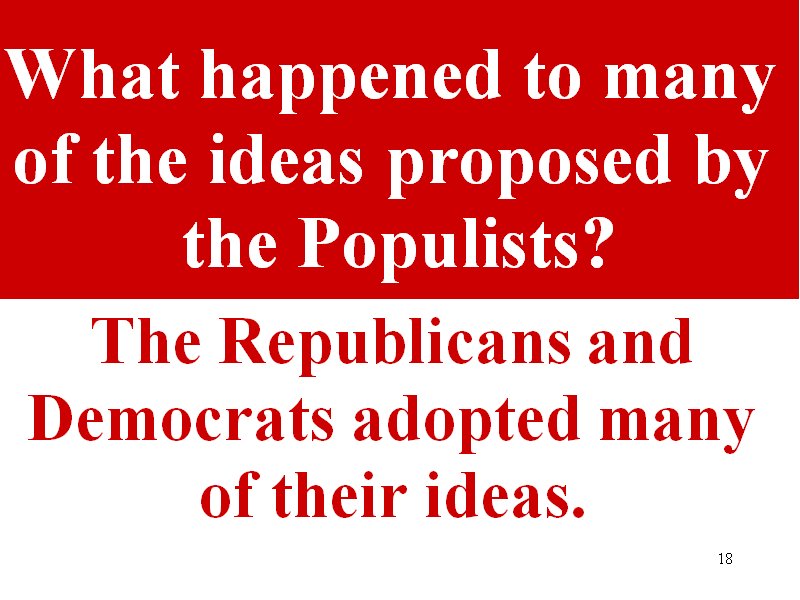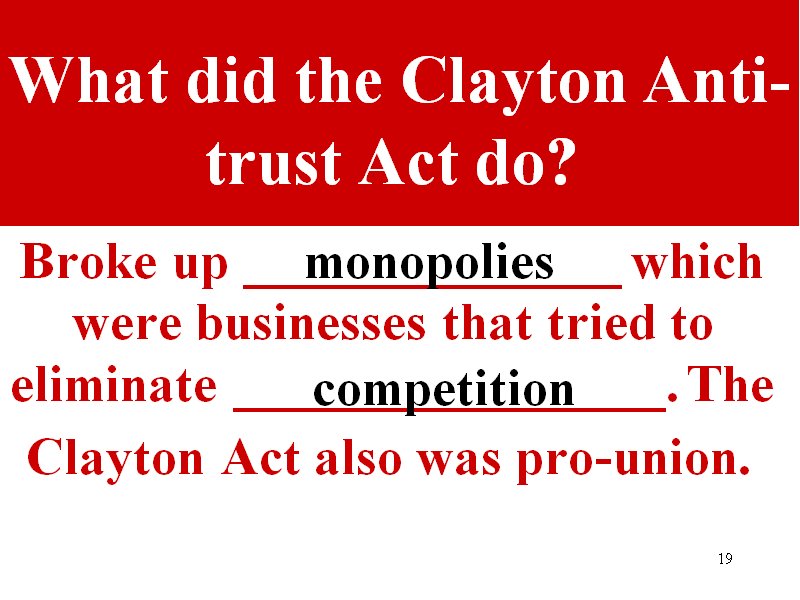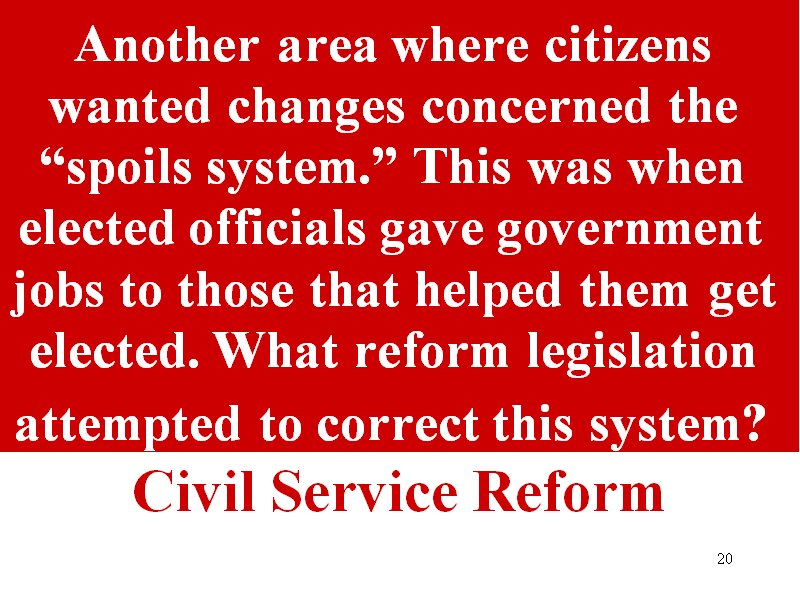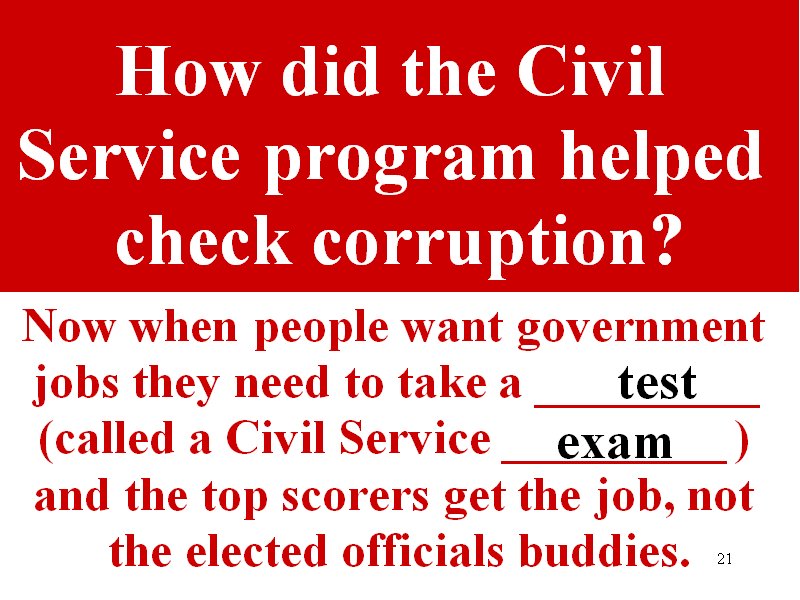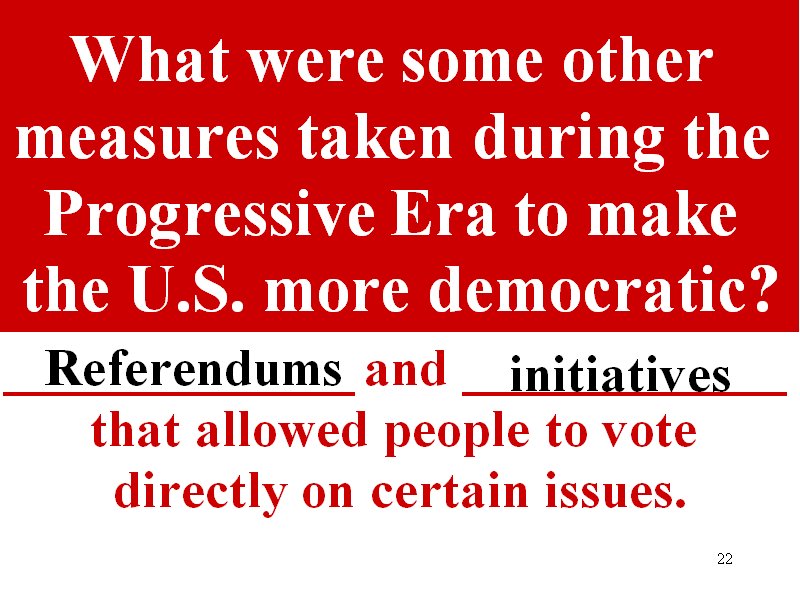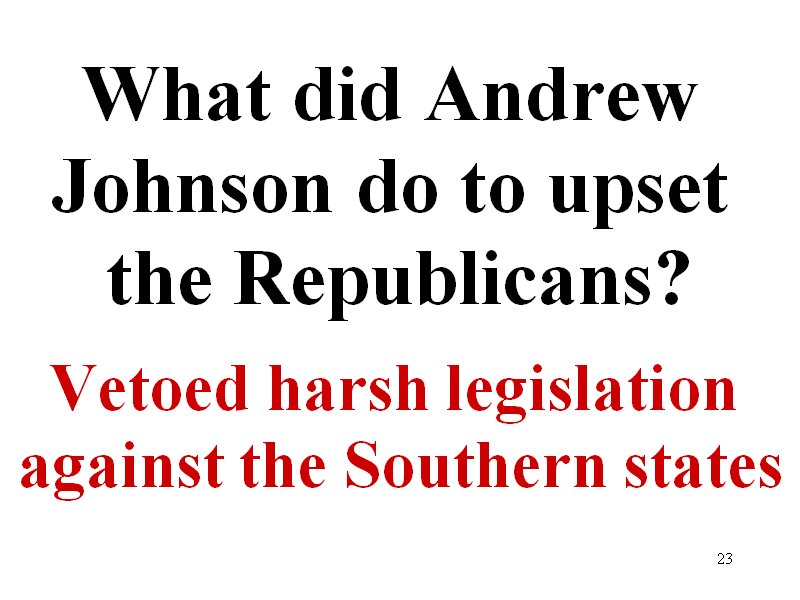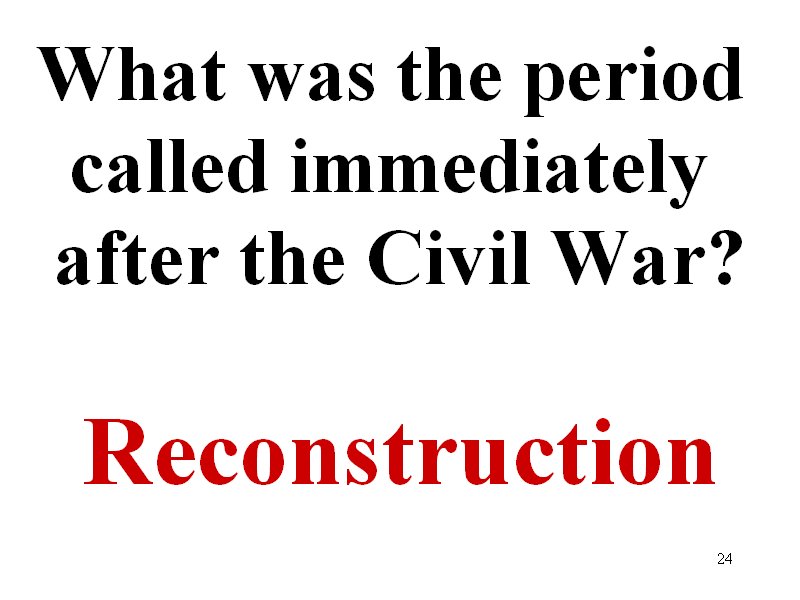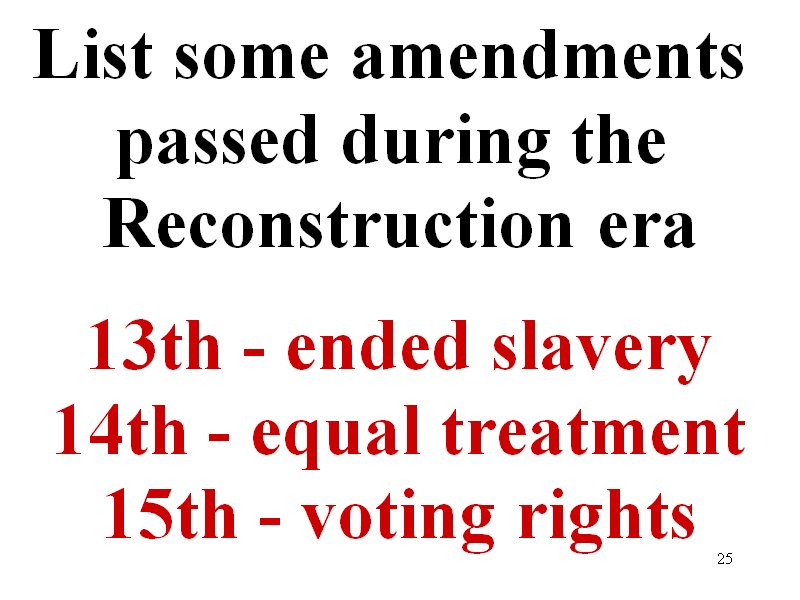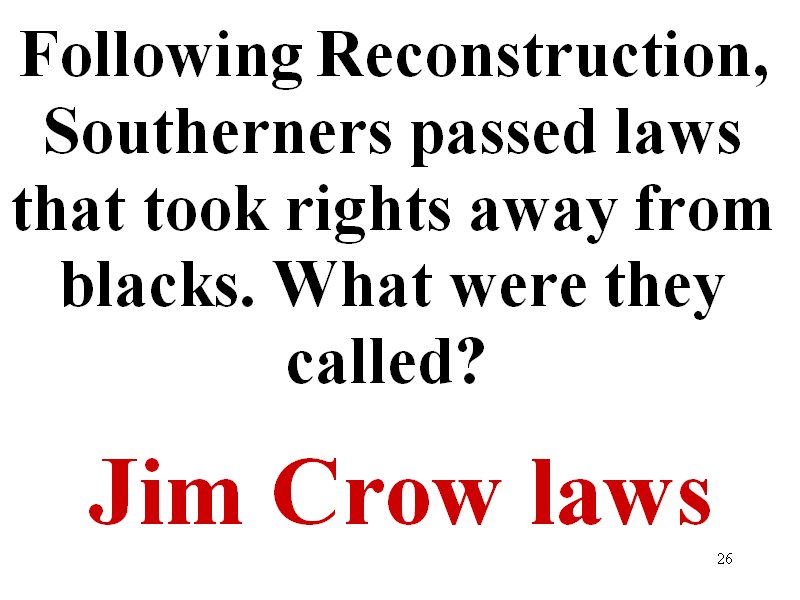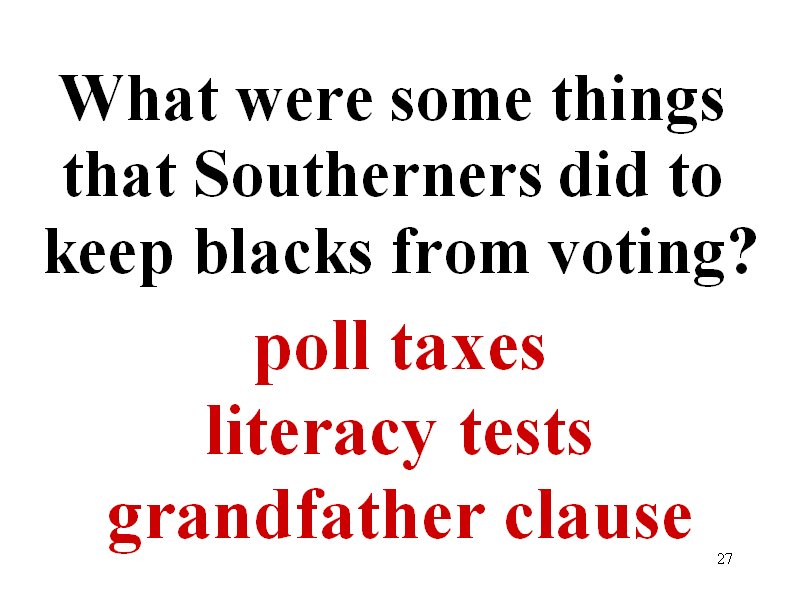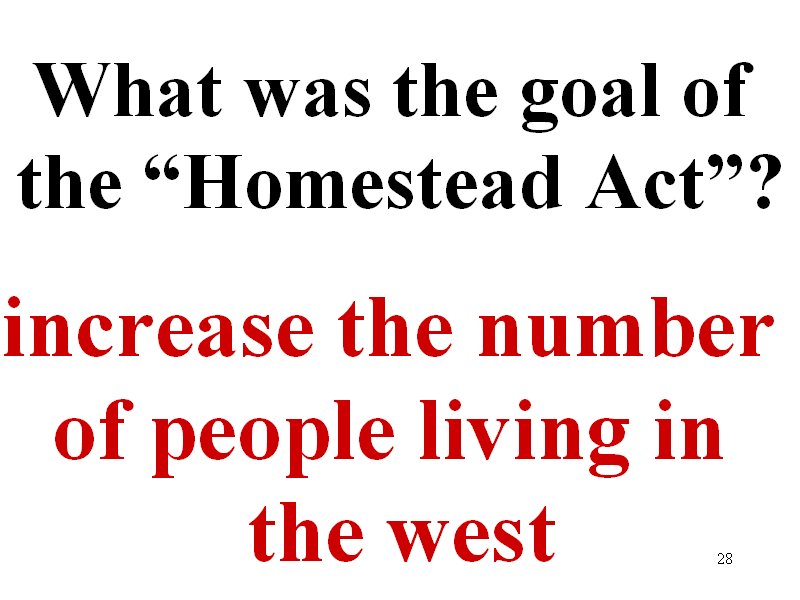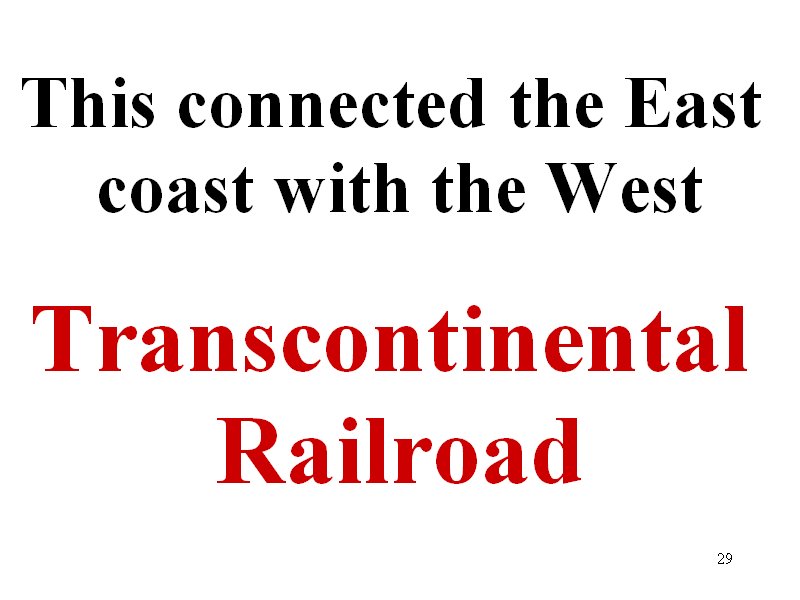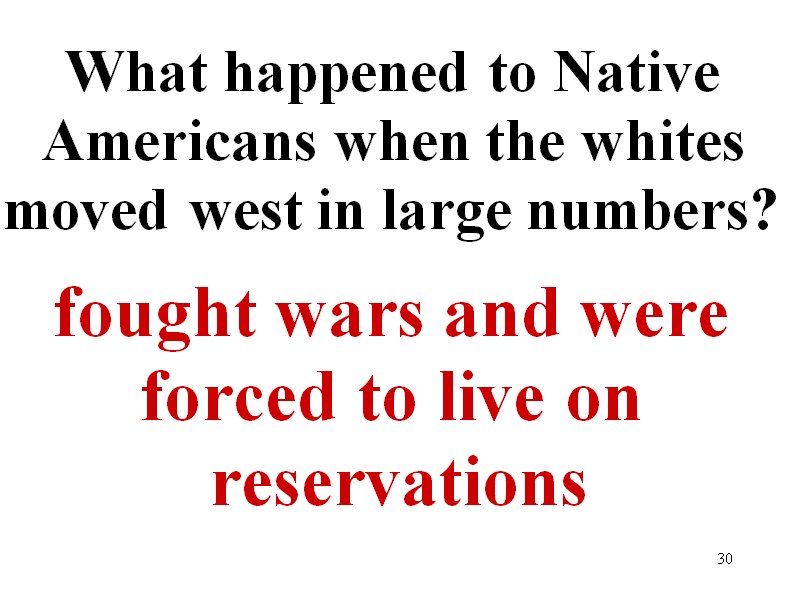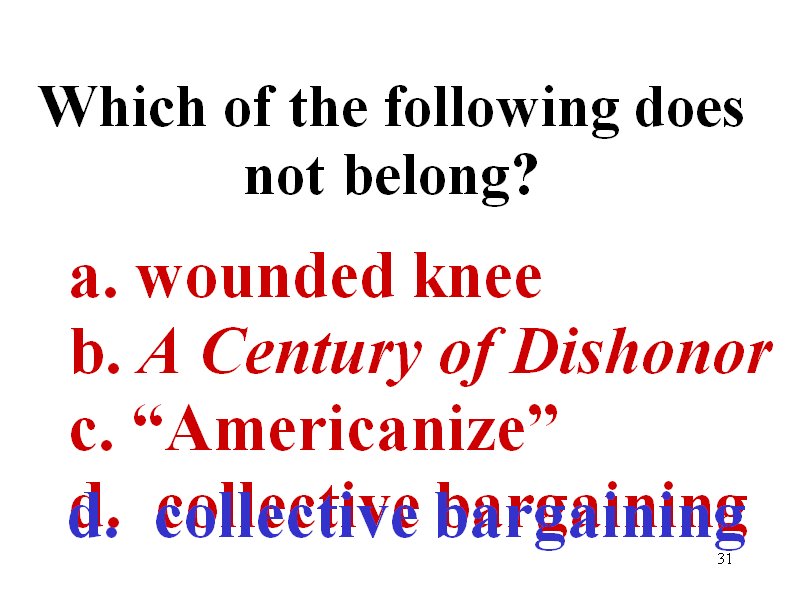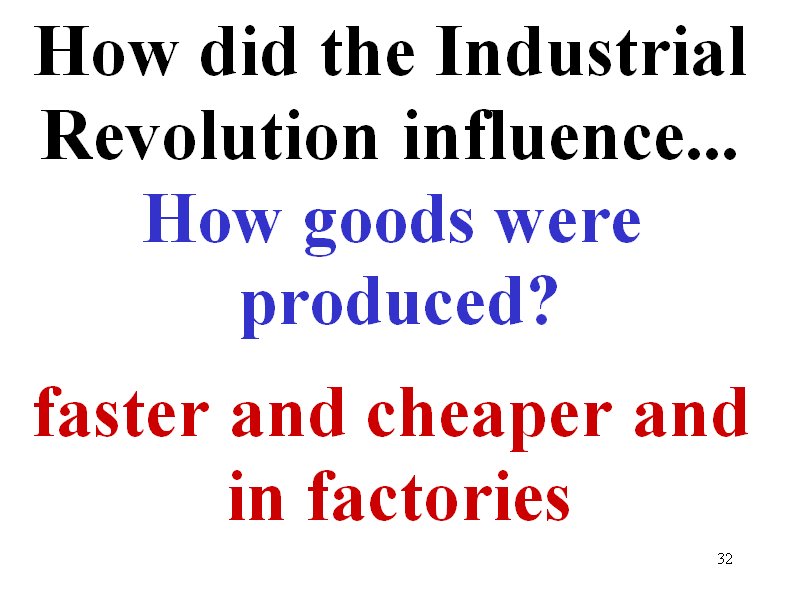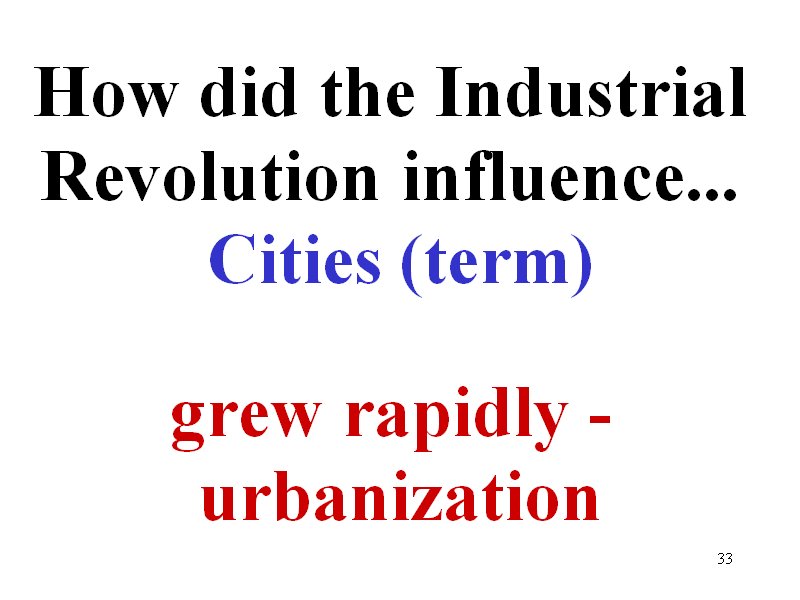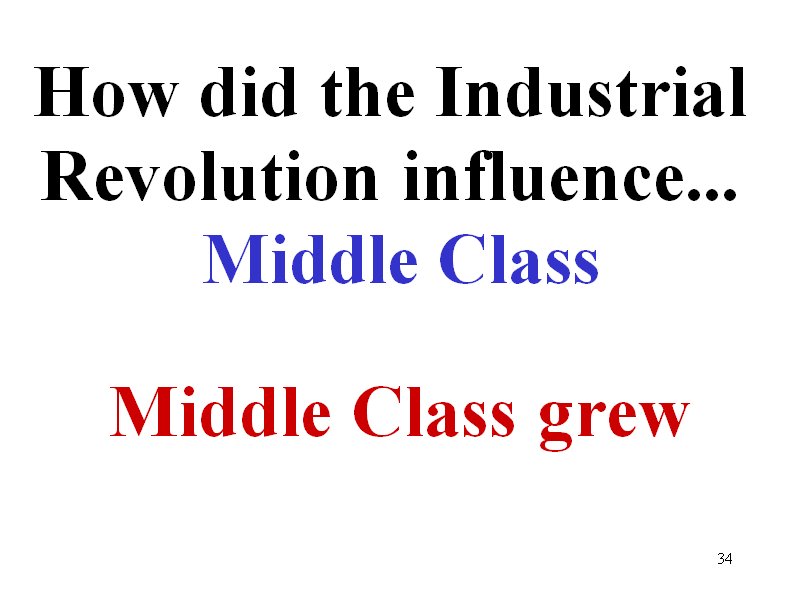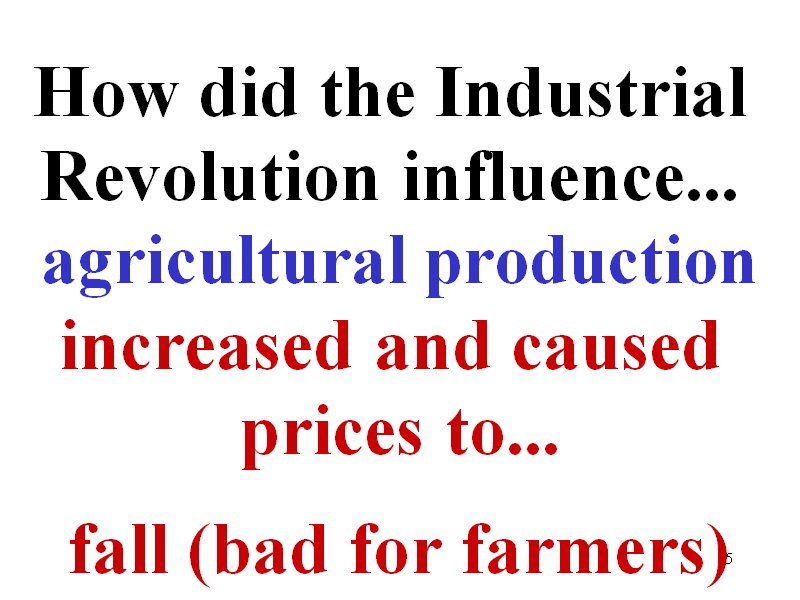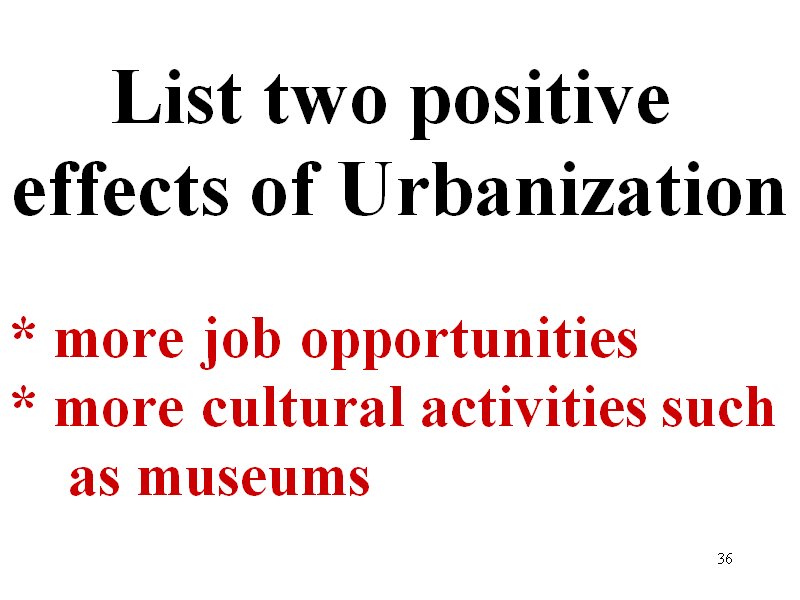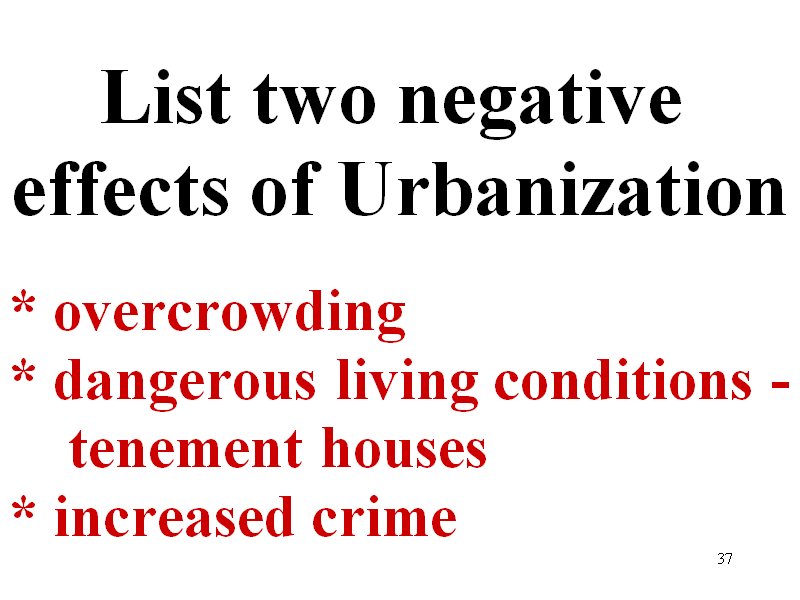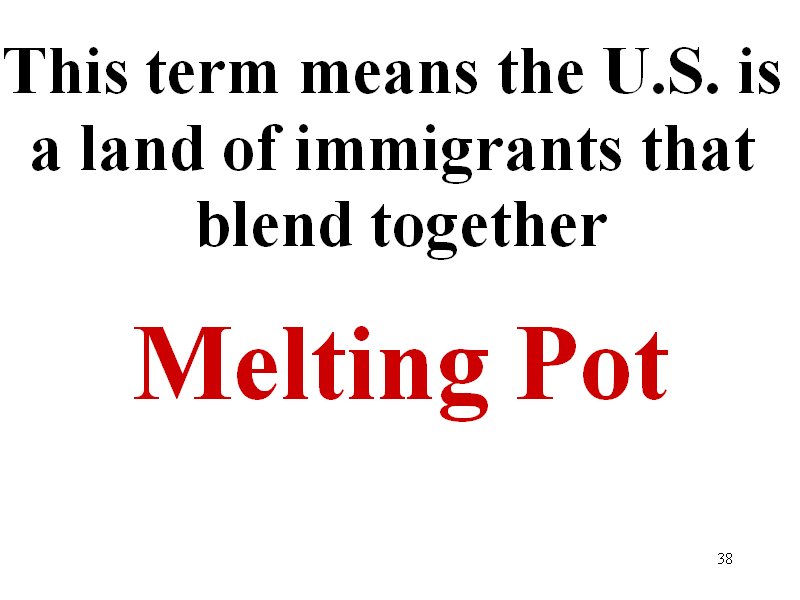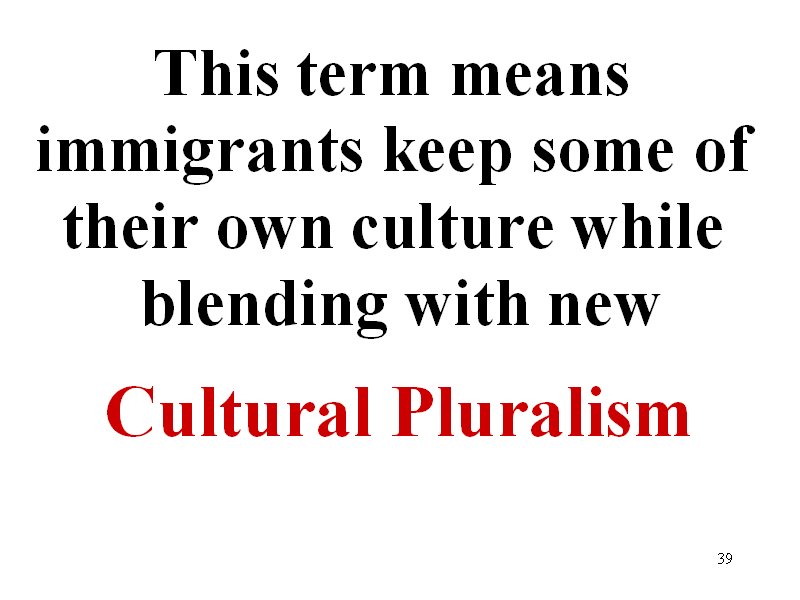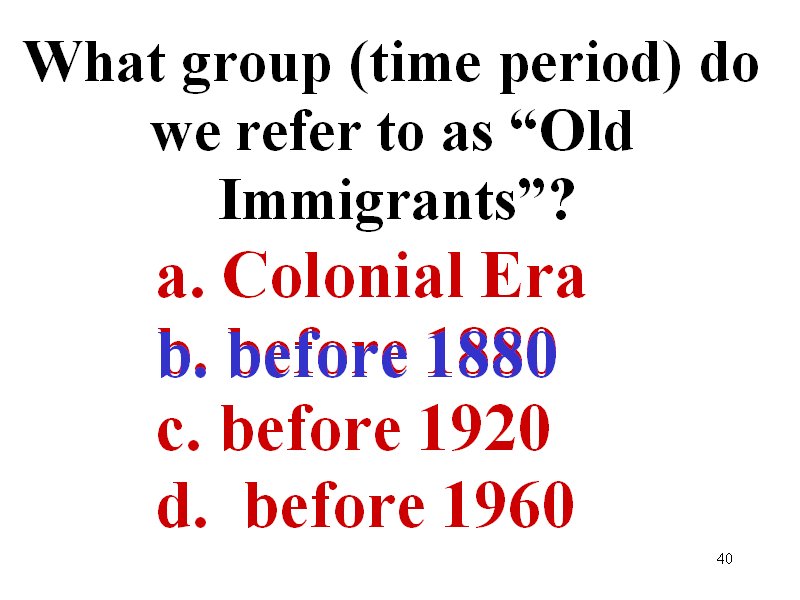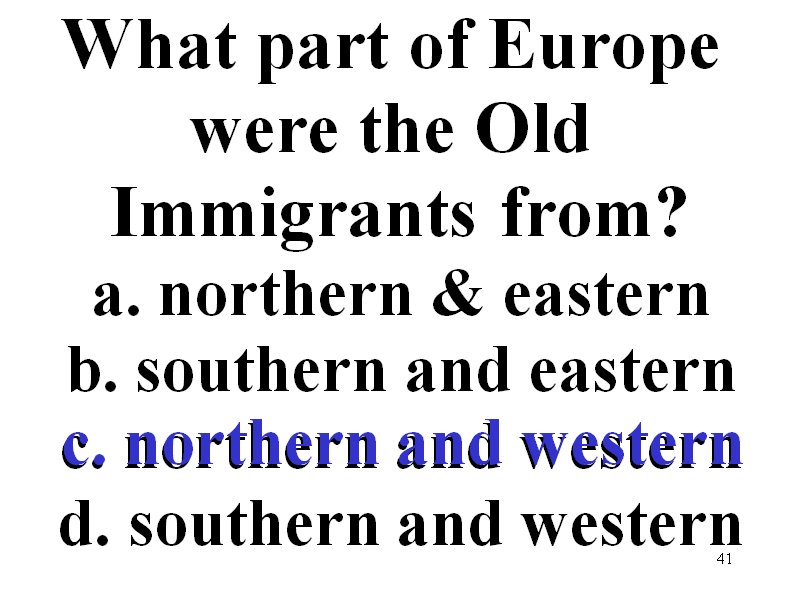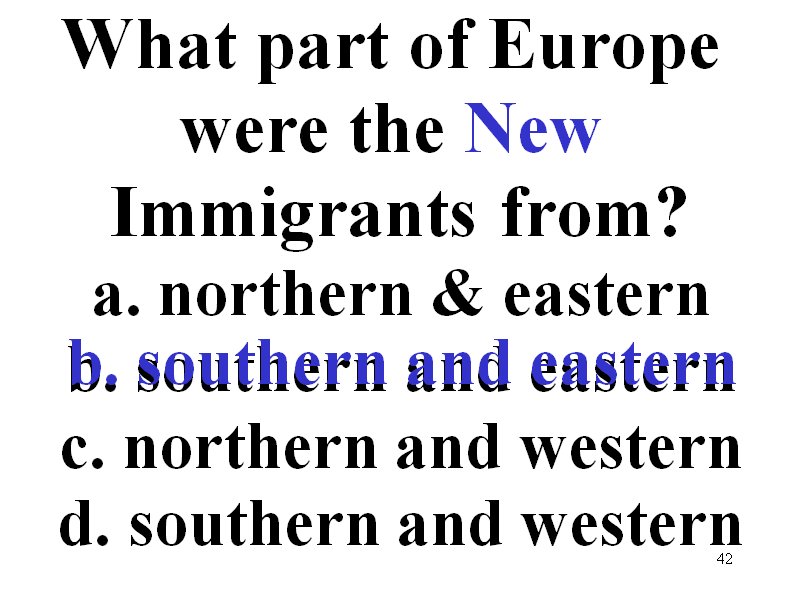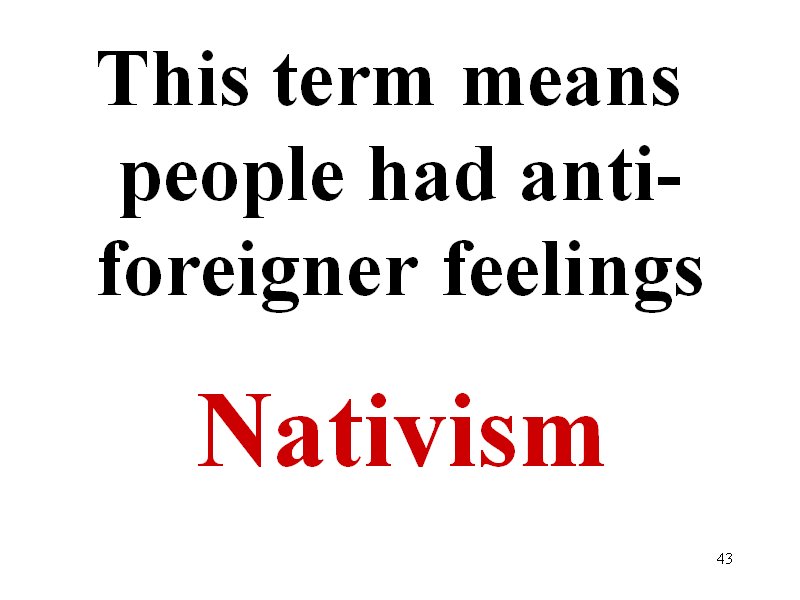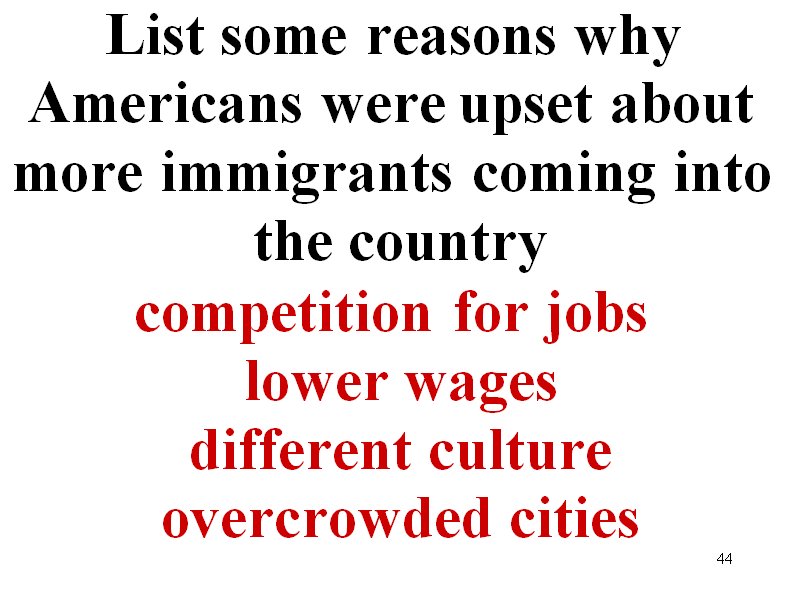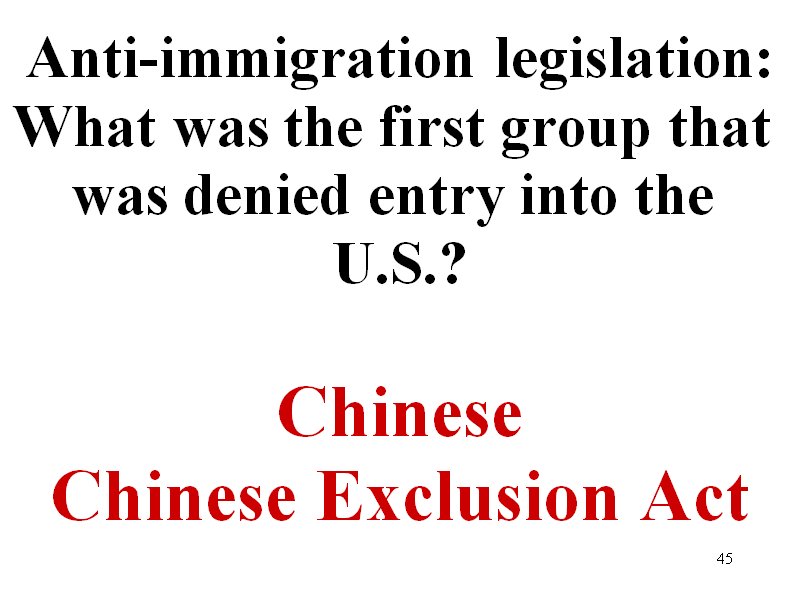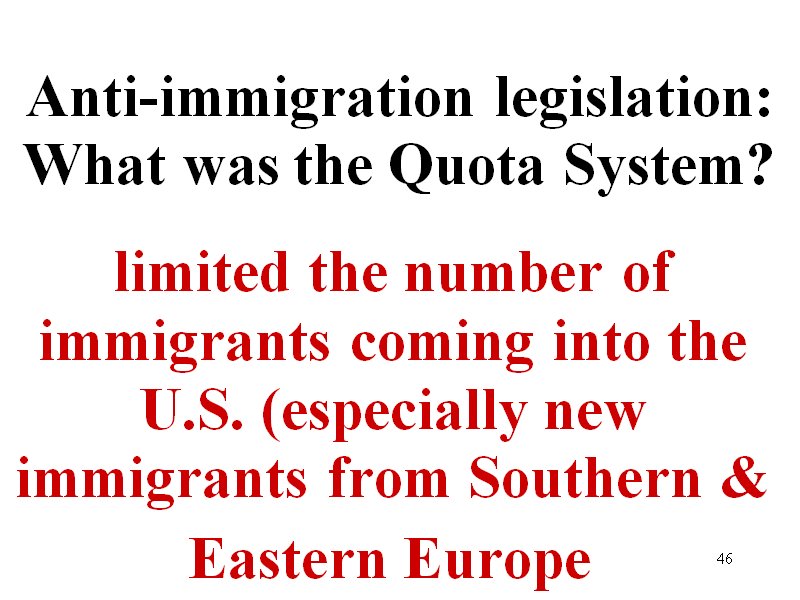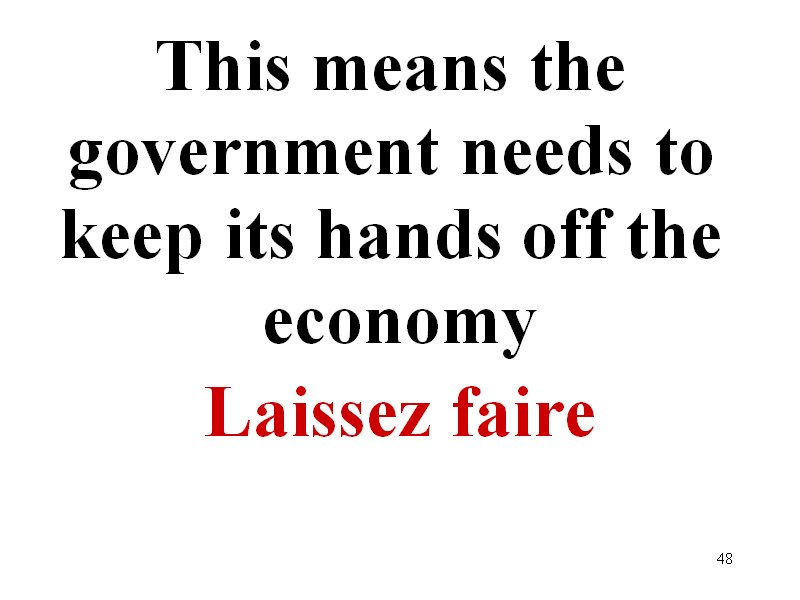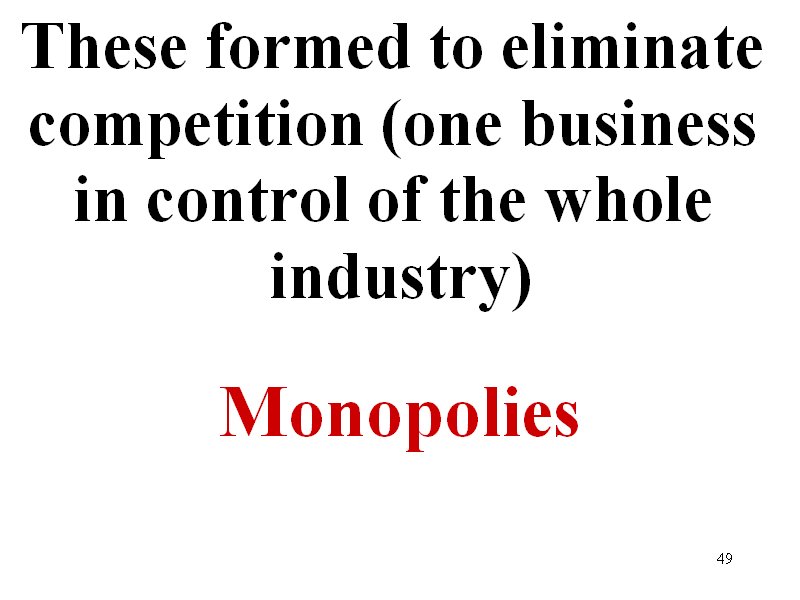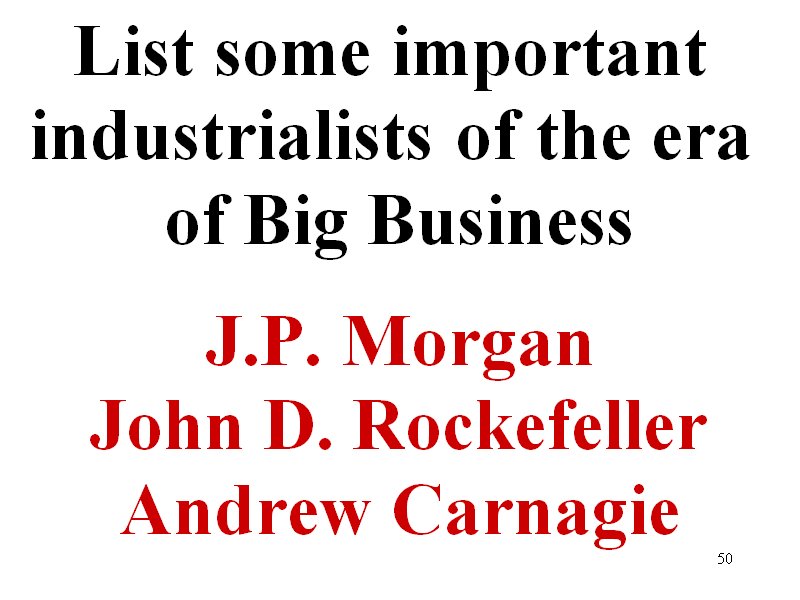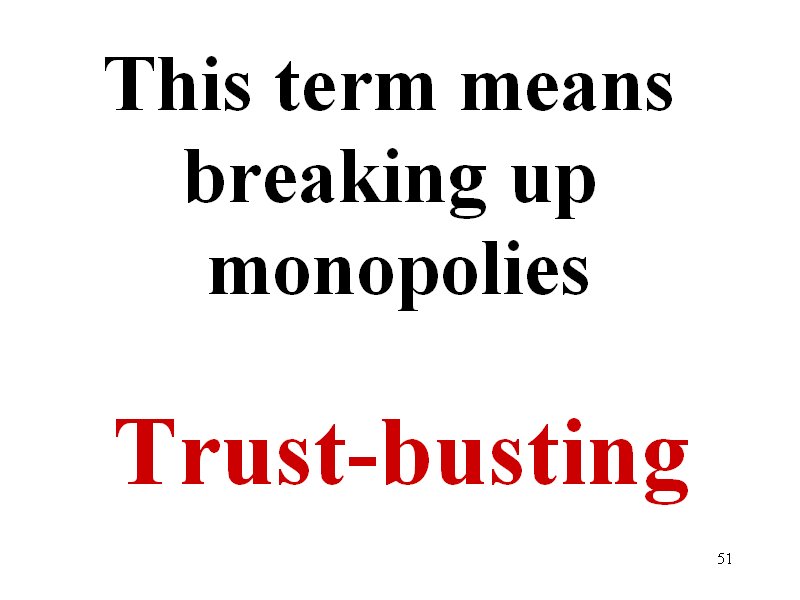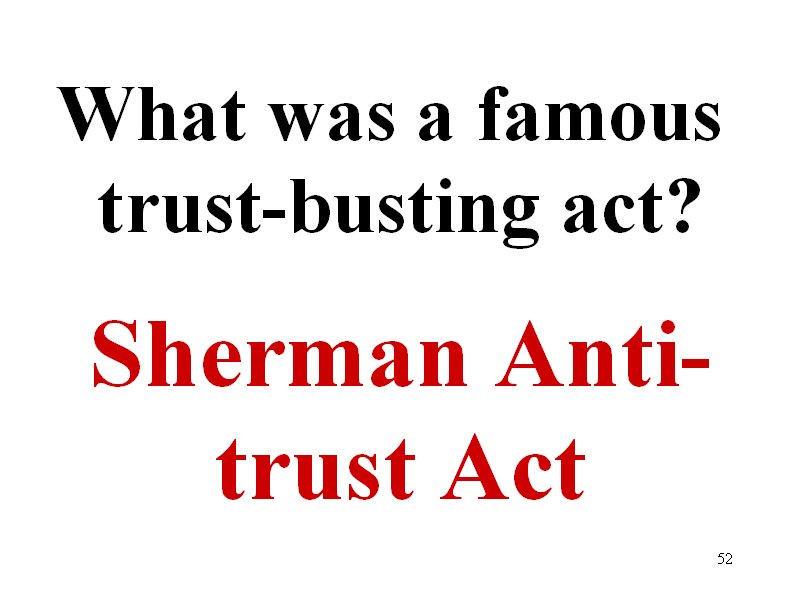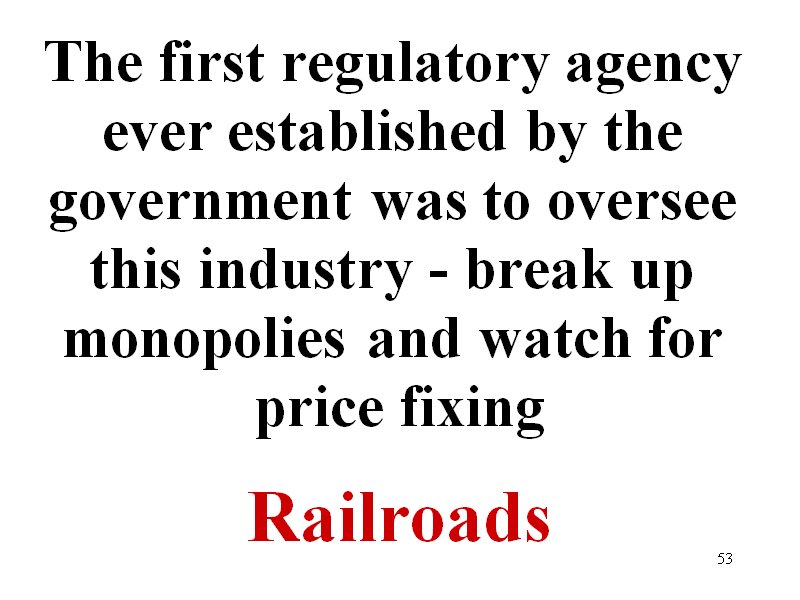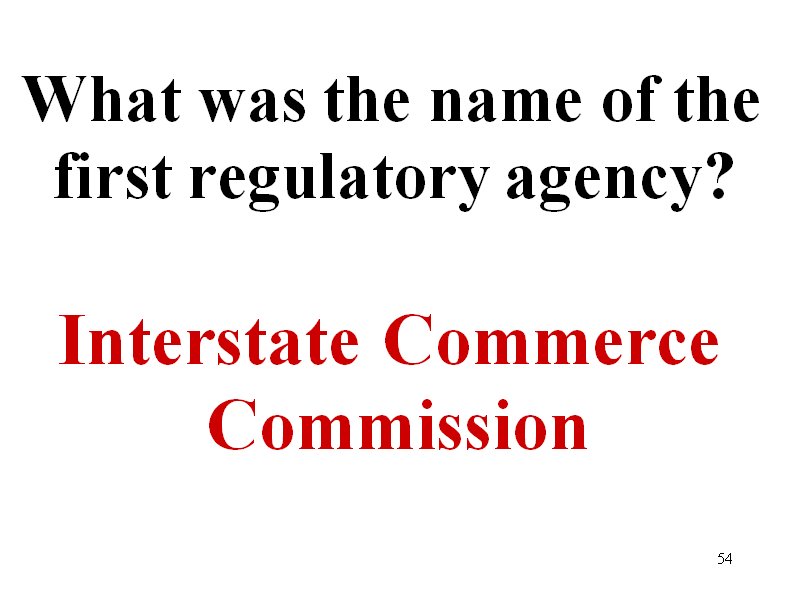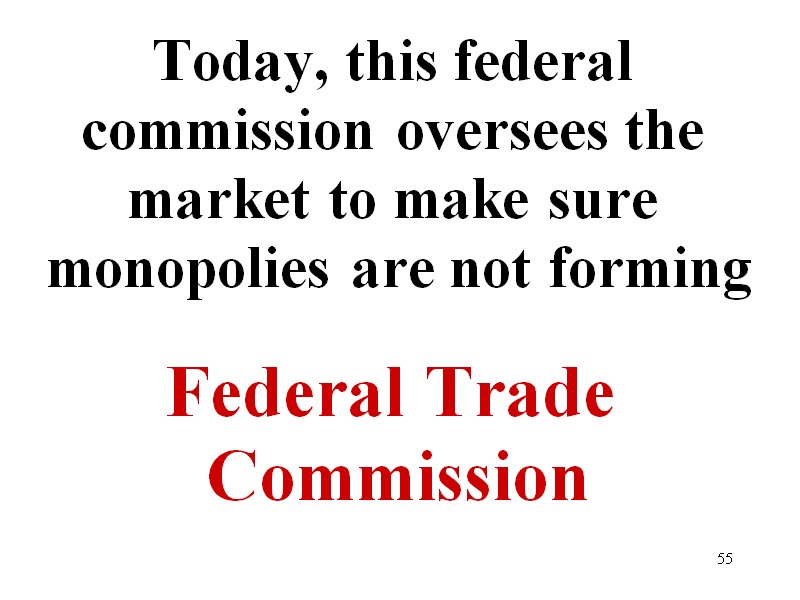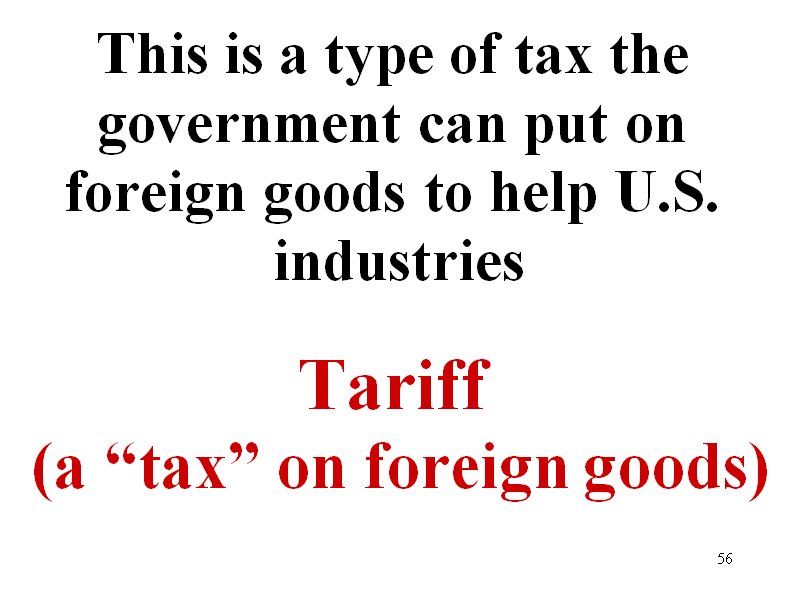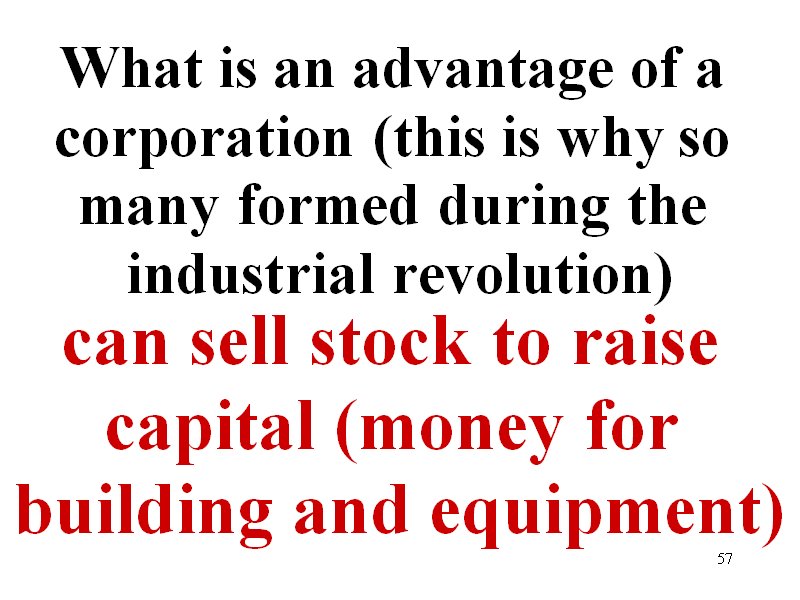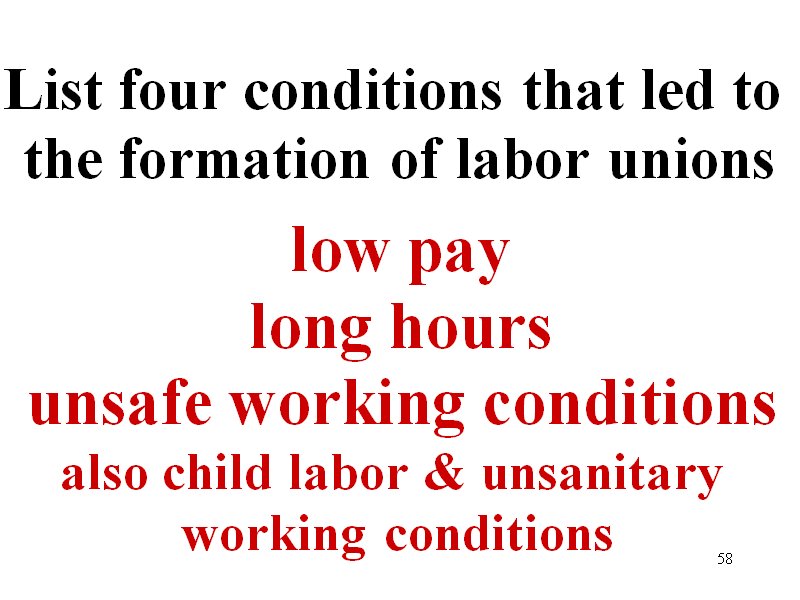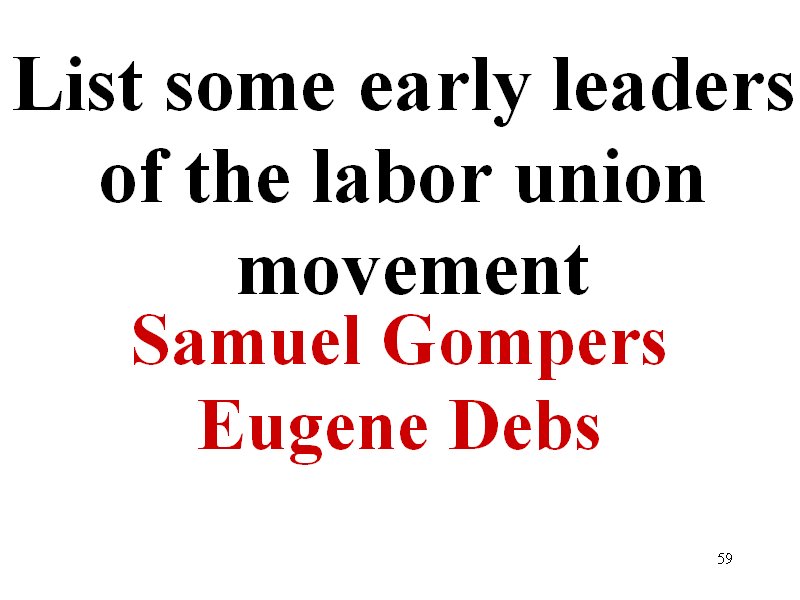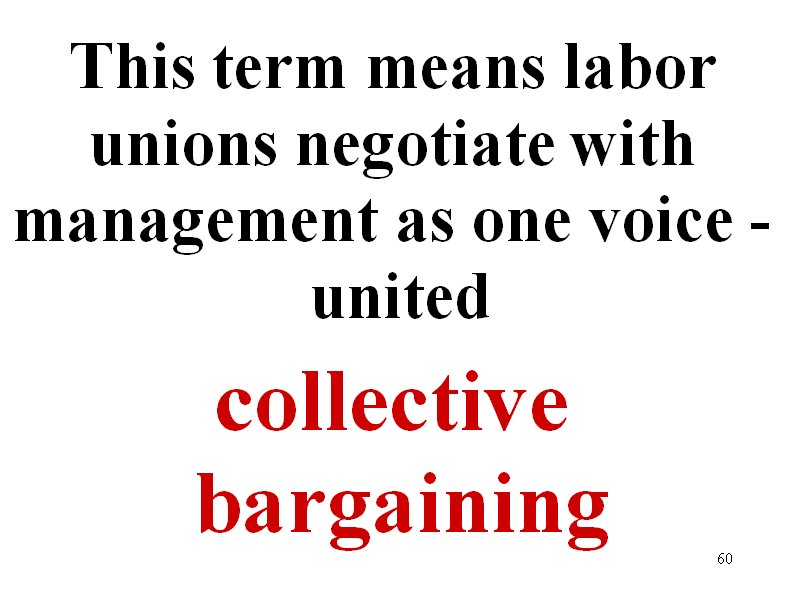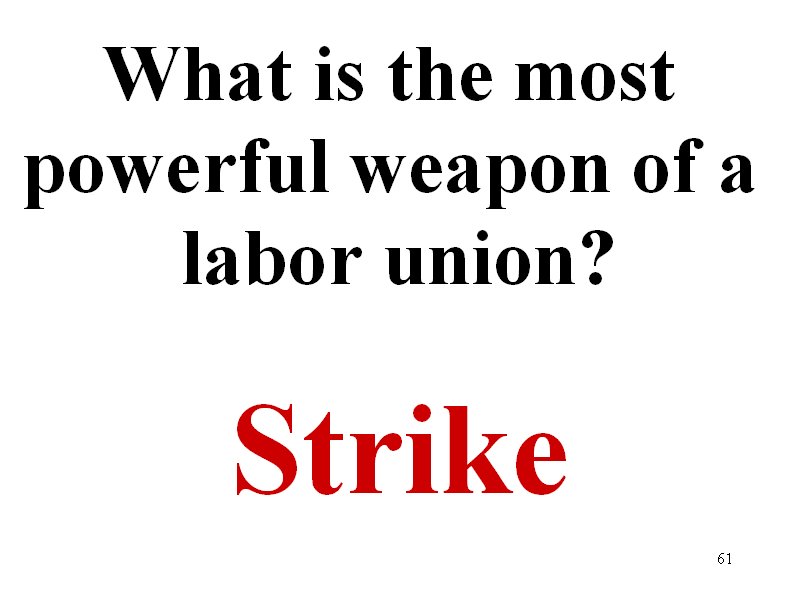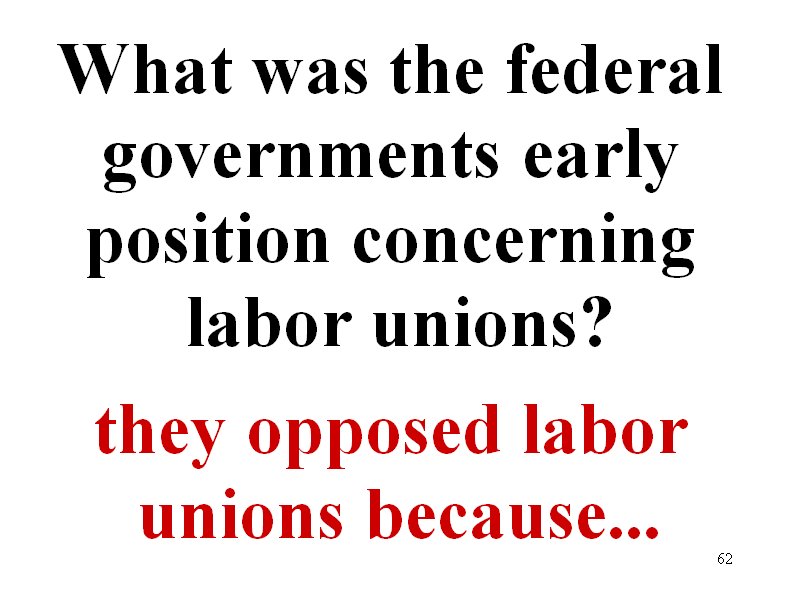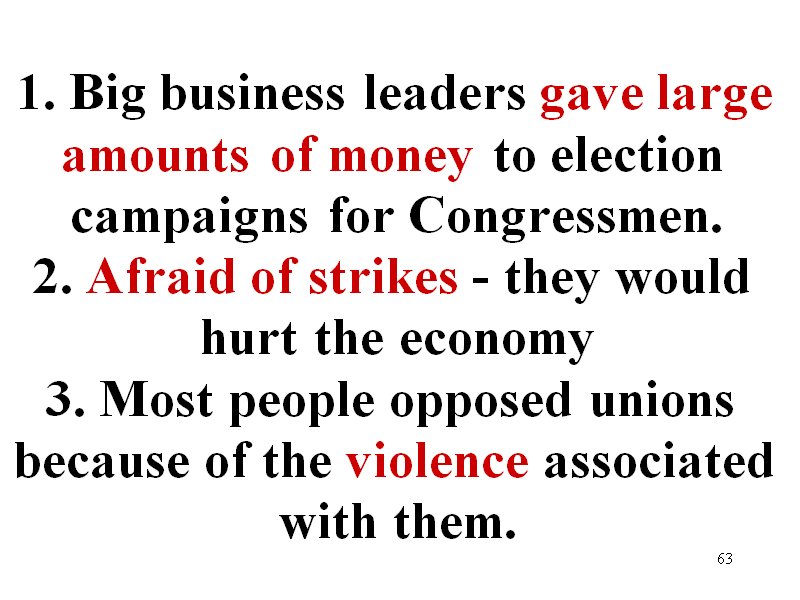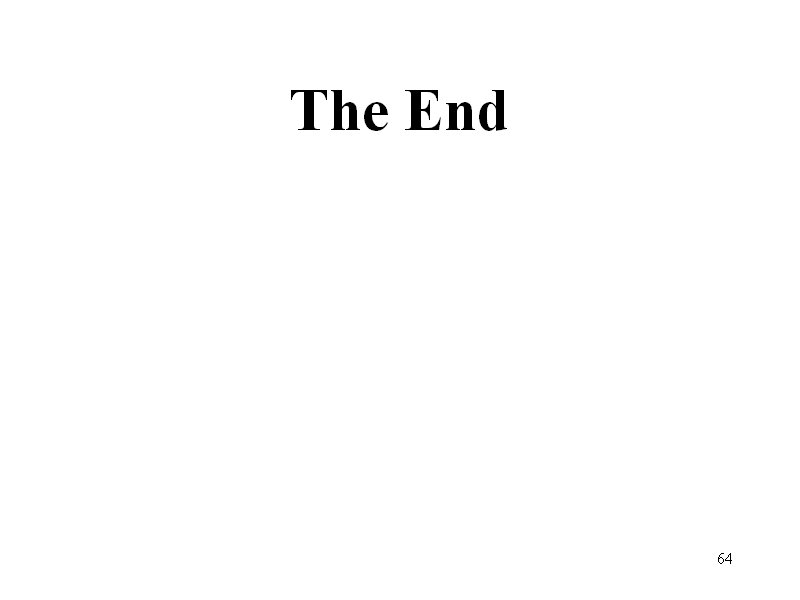| | - Review Progressive Era
- When was the Progressive Era?
- Describe the Progressive Era?
- This term means refers to writer who exposed problems in society
- What were some specific problems the muckrakers tried to address?
- Would you say that most muckrakers were in favor of or opposed to Big Business?
- The Progressive Era was a time of changes for the better. What is a term that means changing for the better?
- Who was the famous muckraker who wrote the Jungle?
- What issue did Sinclair’s book address?
- What changes came about because of Sincliar’s book
- Food and Drug Administration
- Slide 12
- What is a name given to parties that are not one of the two majority parties (not Democratic or Republican)?
- What were two Third Parties that had influence during the Progressive Era?
- What group originally formed the Populist Party?
- What were some issues the farmers were concerned about in the late 19th century?
- What were some issues that concerned the “Populists”? (hints)
- What happened to many of the ideas proposed by the Populists?
- What did the Clayton Anti-trust Act do?
- Another area where citizens wanted changes concerned the “spoils system.” This was when elected officials gave government jobs to those that helped them get elected. What reform legislation attempted to correct this system?
- How did the Civil Service program helped check corruption?
- What were some other measures taken during the Progressive Era to make the U.S. more democratic?
- What did Andrew Johnson do to upset the Republicans?
- What was the period called immediately after the Civil War?
- List some amendments passed during the Reconstruction era
- Following Reconstruction, Southerners passed laws that took rights away from blacks. What were they called?
- What were some things that Southerners did to keep blacks from voting?
- What was the goal of the “Homestead Act”?
- This connected the East coast with the West
- What happened to Native Americans when the whites moved west in large numbers?
- Which of the following does not belong?
- How did the Industrial Revolution influence... How goods were produced?
- Slide 33
- Slide 34
- Slide 35
- List two positive effects of Urbanization
- Slide 37
- This term means the U.S. is a land of immigrants that blend together
- Slide 39
- What group (time period) do we refer to as “Old Immigrants”?
- What part of Europe were the Old Immigrants from?
- Slide 42
- This term means people had anti-foreigner feelings
- List some reasons why Americans were upset about more immigrants coming into the country
- Anti-immigration legislation:
- Slide 46
- What is the name for our type of economic system in the U.S.
- This means the government needs to keep its hands off the economy
- These formed to eliminate competition (one business in control of the whole industry)
- List some important industrialists of the era of Big Business
- This term means breaking up monopolies
- What was a famous trust-busting act?
- The first regulatory agency ever established by the government was to oversee this industry - break up monopolies and watch for price fixing
- What was the name of the first regulatory agency?
- Today, this federal commission oversees the market to make sure monopolies are not forming
- This is a type of tax the government can put on foreign goods to help U.S. industries
- What is an advantage of a corporation (this is why so many formed during the industrial revolution)
- List four conditions that led to the formation of labor unions
- List some early leaders of the labor union movement
- This term means labor unions negotiate with management as one voice - united
- What is the most powerful weapon of a labor union?
- What was the federal governments early position concerning labor unions?
- 1. Big business leaders gave large amounts of money to election campaigns for Congressmen.
- The End
|
